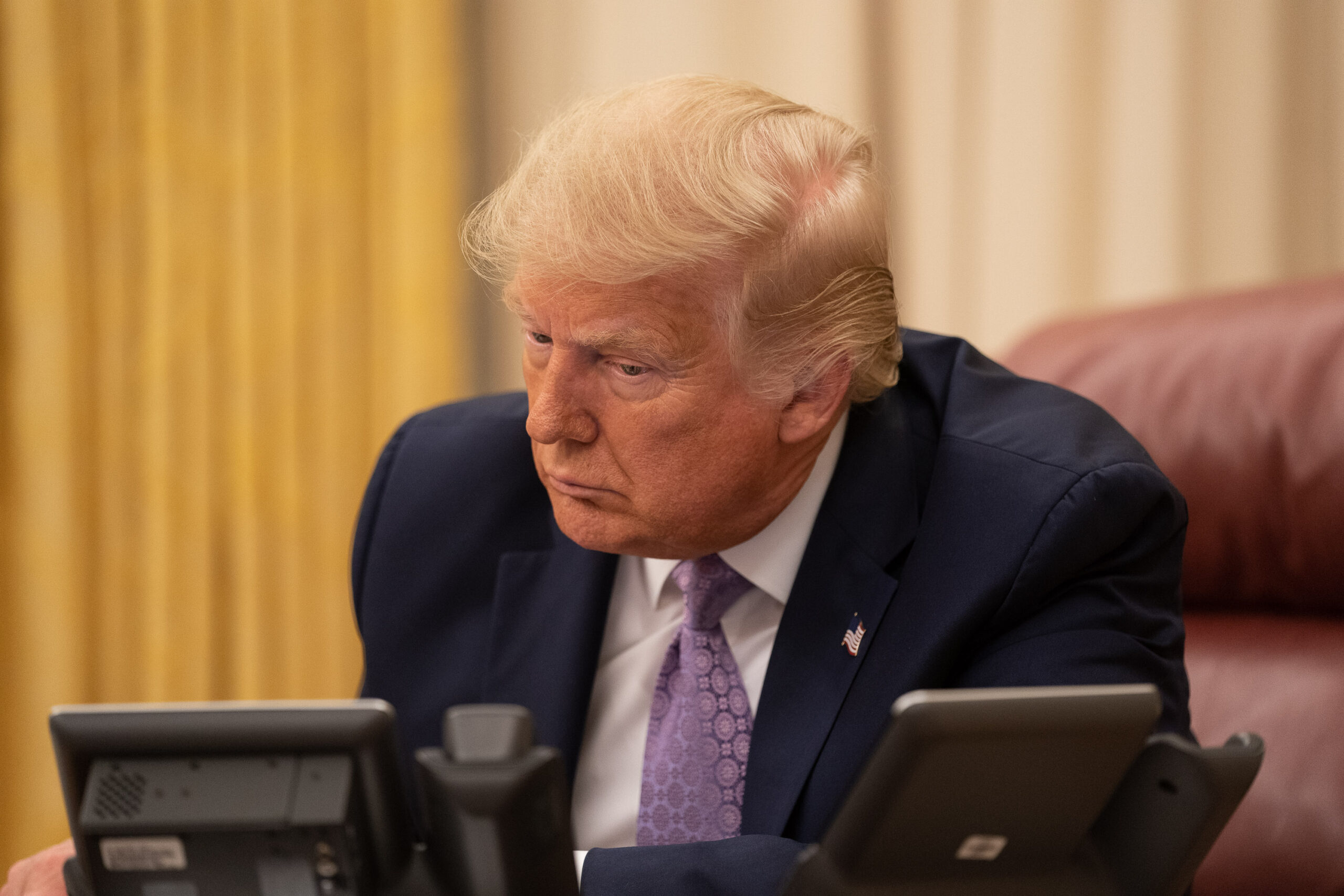Who Really Cares About the Hatch Act? Lots of People — and You Should, Too
People may not know what the Hatch Act is by name, but they know that it’s wrong for partisanship to dictate who gets to be a citizen or what qualifies as the national diplomatic interest.

Members of the self-styled “law and order” president’s administration apparently don’t think much about a law prohibiting them from using government resources for partisan election activity.
In response to a question from Politico about the Republican National Convention’s multiple violations-within-violations of the Hatch Act, White House Chief of Staff Mark Meadows dismissed concerns, saying, “Nobody outside the Beltway really cares.”
We know after watching the convention that President Donald Trump, Acting Homeland Security Secretary Chad Wolf, and Secretary of State Mike Pompeo don’t. And counselor to the president Kellyanne Conway certainly doesn’t either, given her history of brazen defiance. “Blah, blah, blah,” she said last year, after the Office of Special Counsel (OSC) cited her for repeated violations and recommended she lose her job. “If you’re trying to silence me through the Hatch Act, it’s not going to work. Let me know when the jail sentence starts.”
The convention was chock-full of instances in which Trump supporters abused government buildings and resources to talk up the president’s reelection bid. While Trump and Vice President Mike Pence are exempt from the Hatch Act, Pompeo is not; he addressed the convention from Jerusalem, where he was on an official trip (allegations of such abuses of resources are hardly new for Pompeo).
Neither is Wolf, who participated in a naturalization ceremony that was held at the White House and used in the convention broadcast. (According to reports, at least two of the immigrants were unaware the video would be used.) “It is corruption in its highest form for Chad Wolf, in coordination with President Trump, to time a swearing-in ceremony for a partisan convention,” American Oversight’s executive director, Austin Evers, told ABC News.
Multiple other events blurred what ordinarily would be a clear line separating official duties from the campaign. Indeed, buried deep in a recent New York Times story about preparations for the convention was a brief note that “Some of Mr. Trump’s aides privately scoff at the Hatch Act and say they take pride in violating its regulations.”
Of course, violators of the Hatch Act won’t face accountability so long as the prominent news media joins them in shrugging at the rules. On Wednesday, after briefly acknowledging the importance of drawing attention to Hatch Act infringement, Politico’s Playbook then reverted to echoing Meadows’ dismissal. “But do you think a single person outside the Beltway gives a hoot about the president politicking from the White House or using the federal government to his political advantage? Do you think any persuadable voter even notices?”
In the end, it may make political analysts appear wise to offer such predictive (and thereby self-fulfilling) assessments, but it will have done little to tell Americans why the Hatch Act matters — or how Trump administration officials’ chronic violations of the law have evinced their belief that rules don’t apply to them.
And in reality, plenty of people do care about these violations. People may not know what the Hatch Act is by name, but they know that it’s wrong for partisanship to dictate who gets to be a citizen or what qualifies as the national diplomatic interest of the United States. And there is one category of people who definitely care: career federal employees who could (or have) lost their jobs from running afoul of the Hatch Act. In June, two federal workers were suspended without pay for Hatch Act violations, and records recently obtained by American Oversight show how seriously employees took the responsibility of making sure they weren’t committing infractions.
American Oversight had requested the records after OSC issued controversial guidance in late 2018 that was seen as having a chilling effect on the free-speech rights of federal employees by effectively barring them from expressing opinions about Trump’s impeachment. (In 2019, American Oversight represented the American Federation of Government Employees in a lawsuit calling on OSC to rescind the guidance.) The documents include scores of responses from OSC to employees’ questions about whether particular conduct would violate the Hatch Act, including one letter to an employee who had requested that OSC withdraw the guidance. In black and white, we see how Trump officials are acting as though they are above the law–which they are not–while others are held to a different standard. The rule of law requires the opposite.
The Hatch Act isn’t just about election fairness and preventing one candidate from deploying the trappings of power for their own advantage; it also espouses the basic principle that public service and governance come before political ambitions.